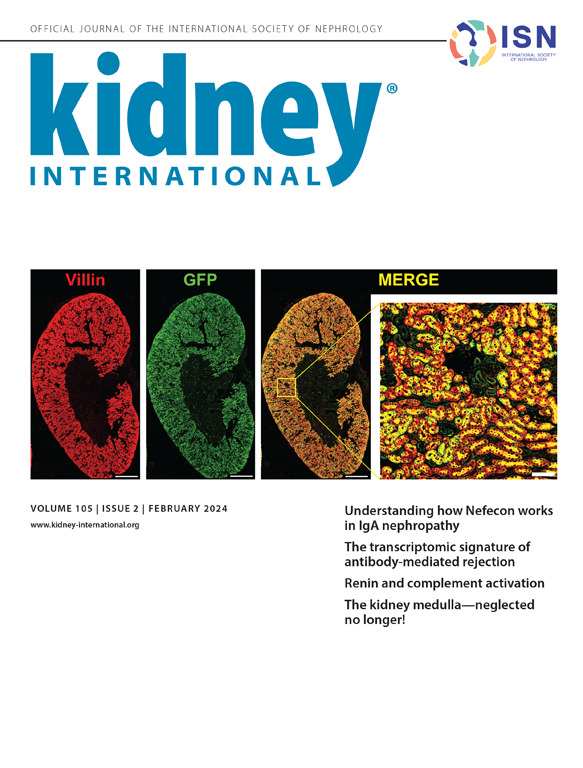单基因肾脏疾病的产前和植入前检测。
IF 14.8
1区 医学
Q1 UROLOGY & NEPHROLOGY
引用次数: 0
摘要
近年来,基因测序技术和测序数据分析的进步大大提高了我们诊断遗传性肾脏疾病的能力。确定致病基因变异不仅对预后和个性化管理至关重要,而且对提供遗传咨询和指导计划生育决策也至关重要。尤其重要的是,希望生育的患者应尽早获得有关生育选择的建议,最好是在受孕之前。这篇简明综述重点介绍了单基因肾病产前和植入前基因检测的可选方案,包括最新进展以及与这些生殖技术相关的法律和伦理问题。虽然这些检测可用于所有已在指标患者中发现致病变异体的单基因疾病,但目前有创产前检测主要用于严重的儿童期单基因肾脏疾病。单基因遗传病的无创产前诊断是一个快速发展的领域,一旦一些技术难题得到解决,有望为有创产前诊断提供准确、可接受的替代方案。植入前基因检测可以选择和植入不含致病基因变异的胚胎,从而大大降低受影响妊娠的风险。这种方法越来越受到单基因肾病患者的青睐,尤其是那些晚期表现的疾病,如常染色体显性多囊肾。这篇综述涵盖了单基因肾病植入前基因检测的程序、结果以及技术、伦理和法律方面的挑战。本文章由计算机程序翻译,如有差异,请以英文原文为准。
Prenatal and preimplantation genetic testing for monogenic kidney disorders
In recent years, advances in genetic sequencing techniques and in the analysis of sequencing data have significantly improved our ability to diagnose genetic kidney diseases. Identification of the disease-causing genetic variant(s) is crucial not only for prognostication and personalized management, but also for providing genetic counseling and guiding family planning decisions. It is particularly important that patients desiring children receive advice on their reproductive choices early, ideally before conception. This concise review focuses on the options available for prenatal and preimplantation genetic testing in the context of monogenic kidney diseases, including the latest progress and the legal and ethical issues associated with these reproductive technologies. Although these tests could be performed for all monogenic disorders where the disease-causing variant(s) has (have) been identified in the index patient, invasive prenatal testing is currently primarily performed for severe childhood-onset monogenic kidney disorders. Noninvasive prenatal diagnosis for monogenic disorders is a rapidly developing field that promises to provide an accurate and acceptable alternative to invasive procedures once several technical challenges have been addressed. Preimplantation genetic testing allows for the selection and implantation of embryos free from the disease-causing genetic variants, significantly lowering the risk of affected pregnancies. This option is becoming more popular among individuals with monogenic kidney diseases, particularly those with disorders that manifest later in life, such as autosomal dominant polycystic kidney disease. This review covers the procedure, its outcomes, and the technical, ethical and legal challenges of preimplantation genetic testing for monogenic kidney diseases.
求助全文
通过发布文献求助,成功后即可免费获取论文全文。
去求助
来源期刊

Kidney international
医学-泌尿学与肾脏学
CiteScore
23.30
自引率
3.10%
发文量
490
审稿时长
3-6 weeks
期刊介绍:
Kidney International (KI), the official journal of the International Society of Nephrology, is led by Dr. Pierre Ronco (Paris, France) and stands as one of nephrology's most cited and esteemed publications worldwide.
KI provides exceptional benefits for both readers and authors, featuring highly cited original articles, focused reviews, cutting-edge imaging techniques, and lively discussions on controversial topics.
The journal is dedicated to kidney research, serving researchers, clinical investigators, and practicing nephrologists.
 求助内容:
求助内容: 应助结果提醒方式:
应助结果提醒方式:


